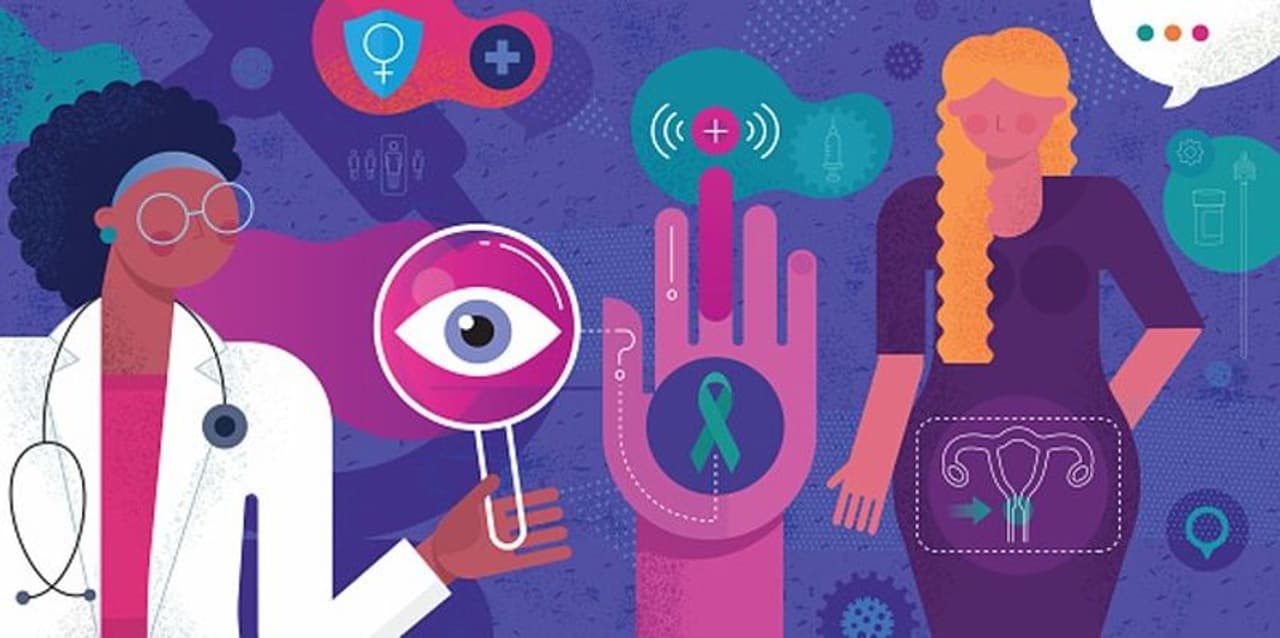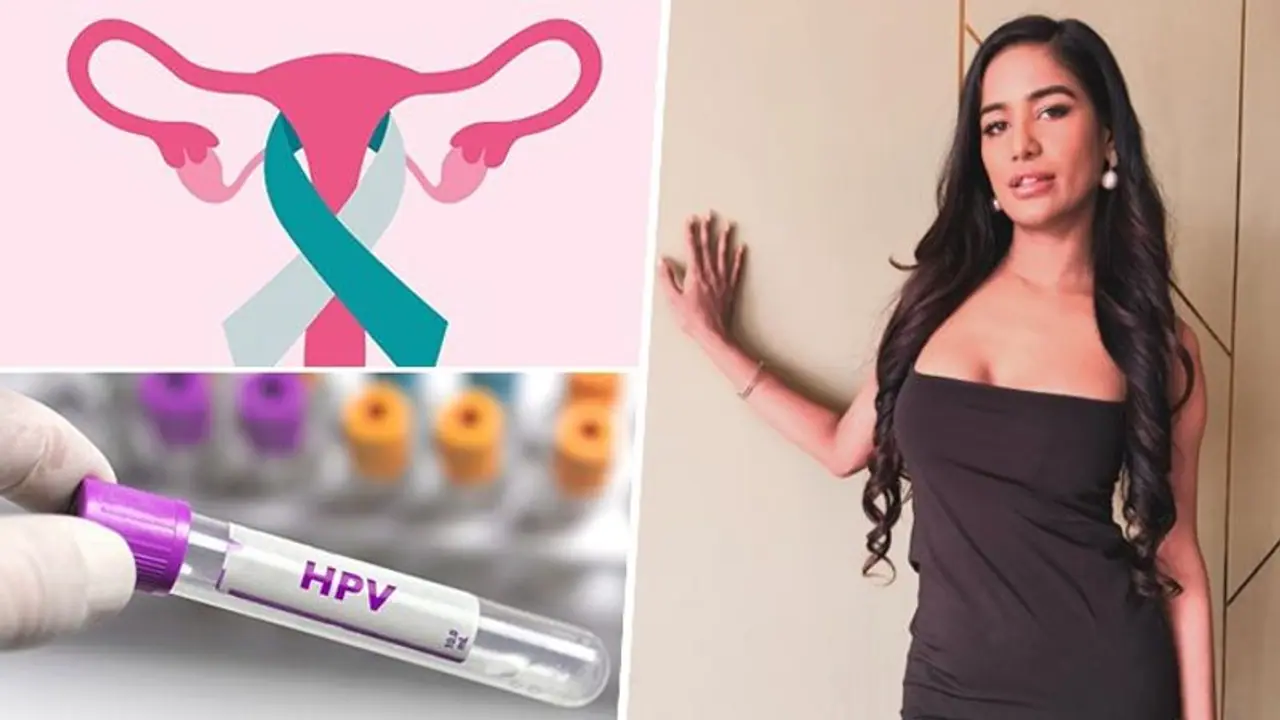Amidst the startling news of model-actress Poonam Pandey's reported death due to cervical cancer at the age of 32, discussions about cervical health have surged, prompting urgent conversations about safeguarding one's reproductive system.
In a surprising Instagram announcement on Friday morning, the team of actor-model Poonam Pandey claimed her tragic demise at the age of 32, following a battle with cervical cancer, sending shockwaves across the nation. Additionally, Poonam's team reiterated the news in an interview several media houses, confirming the controversial celebrity's passing on Thursday night at her residence in Uttar Pradesh's Kanpur. The sudden announcement has left fans in disbelief, with some questioning the authenticity of the post, especially considering her last Instagram update just three days prior showcased her at a party in Goa.

Amidst the startling news, discussions about cervical health have surged, prompting urgent conversations about safeguarding one's reproductive system. Health experts emphasize the significance of reproductive well-being in light of recent events. Medical oncologist Dr Gauravi Mishra from Tata Memorial Hospital, Mumbai, stated that cervical cancer is still a huge problem for India.
"India still registers 1.25 lakh new cervical cancer cases every year. Over 70,000 women die of the condition every year. We still account for one-fifth of all the global cervical cancer cases in the world. There is need for screening and teaching women about importance of genital health," said Dr Mishra.
What is cervical cancer?
Cervical cancer originates in the cells of the cervix, the lower part of the uterus that links to the vagina. Most cases of cervical cancer stem from various strains of the Human Papillomavirus (HPV). The disease generally progresses over several years and is categorized into two primary types: squamous cell carcinoma and adenocarcinoma.
A recent Lancet study showed that India had the most cases of cervical cancer in Asia, and accounts for 23% of all deaths from it. While the incidence of cervical cancer has significantly declined worldwide, including in India, it remains essential for every woman over 35 to undergo screening for the disease and for girls under 15 years of age to receive vaccination.
Why early diagnosis of cervical cancer matters?
As per CDC guidelines, women should receive cervical cancer screening via a Pap test every three years, beginning at age 21 and continuing until age 65. If HPV co-testing is conducted, screening intervals may extend to once every five years. HPV testing should commence after the age of 30. Prevention is preferable to treatment, highlighting the importance of regular screening.
According to Dr Kshitiz Murdia, CEO and Co-Founder of Indira IVF, "Health of the reproductive system is imperative in ensuring the overall well being, specifically cervical health. Having periodic cervical health checks done, for example Pap smears and HPV testing are very critical in the early detection of any abnormal cell changes on the cervix. Early diagnosis is vital as it enables early intervention and also ensures proper treatment of cervical cancer.”
"Moreover, healthy lifestyles contribute immensely to the better reproductive and also cervical health. This includes ceasing smoking, as smoking is linked to higher risk of cervical cancer development. Whole, balanced meals consisting lots of fruits and vegetables as well as lean proteins and healthy fats are essential for hormonal balance which promises a successful reproduction. Managing weight through appropriate nutrition and physical activity is a critical intervention for individuals as obesity is linked with developing cervical disease cancer," he told in an interview with HT.
Can cervical cancer be prevented?
During a recent discussion organized by the Indian Cancer Society, Dr Purna Kurkure, a trustee, highlighted the potential benefits for India from the World Health Organization's (WHO) dual strategy. She emphasized that cervical cancer is now preventable through vaccination.
Dr. Kurkure explained the WHO's 90-70-90 approach, which aims to eliminate cervical cancer: 90% of girls should receive full HPV vaccination by the age of 15, around 70% of women aged 35-45 should undergo HPV testing, and approximately 90% of women diagnosed with cervical disease should receive treatment for precancerous lesions or invasive cancer.
On February 1 during her Interim Budget 2024 speech, Finance Minister Nirmala Sitharaman said that the government will encourage vaccination for girls in the 9-14 year age group for the prevention of cervical cancer. "Our government will encourage vaccination for girls from the age group of 9 to 14 years for prevention of cervical cancer. Various schemes for maternal child care will be brought under one comprehensive programme for synergy in implementation, upgrades of anganwadi centres under saksham anganwadi and Poshan 2.0 will be expedited for improved nutrition delivery, early childhood care, and development," she said.

HPV vaccine: Importance and how it can be a lifesafer
Administering HPV vaccines is a preventive measure against cervical cancer. Typically targeted towards girls aged 9 and under 15, these vaccines are delivered in two or three doses, depending on the individual's age. While they cannot treat existing HPV infections, it's crucial to administer the vaccines before engaging in sexual activity.
In 2023, the market saw the debut of India's first domestically produced HPV vaccine. Named Cervavac, the vaccine was crafted and produced by the Serum Institute of India (SII), headquartered in Pune. Priced at Rs 4,000 for two doses (or Rs 2,000 for a single dose), Cervavac stands as India's inaugural quadrivalent Human Papillomavirus (qHPV) vaccine.
Dr Priya SP Patil, a Consultant Obstetrician and Gynaecologist at Altius Hospital in Bengaluru, attributes the significant incidence of cervical cancer cases and fatalities in India to insufficient access to vaccination, screening techniques, and treatment services.
"HPV vaccine combined with screening methods is the most effective way to prevent cervical cancer. The vaccines available in the market are quite expensive and are out of reach to all," Dr Patil said.
There are two types of HPV vaccines available: Quadrivalent (covering 4 strains) and Nonavalent (covering 9 strains). In addition to safeguarding against cervical cancer, these vaccines also provide protection against genital warts, as well as oropharyngeal and penile cancers.
Dr Patil added, "Social and economic constraints shouldn’t deprive women of this essential vaccine which is life-saving. I am very happy to know about the changes the government is bringing about. As per the recent budget, making the HPV vaccine available to all will make meet ends and help achieve the set target and accelerate the elimination of cervical cancer."
"If we achieve 90% of girls fully vaccinated by the year 2030, India will be setting an example to the entire world. This also gains media traction which helps create awareness. The challenges of vaccination in rural areas can be overcome making vaccines available in PHC ( Primary Health Centre)," she emphasized.
HPV is accountable for various cancers, including vulval, vaginal, anal, and even head and neck cancer. Therefore, a single vaccine can target a wide range of cancers, particularly those affecting the pelvic region, not only in women but also in men.
Dr. Niti Raizada, Senior Director of Medical Oncology and Hemato Oncology, at Fortis Hospitals, Bengaluru, said, "The best results occur when the vaccine is administered early, before exposure to HPV. The optimal stage for administration is between 9 to 14 years old, requiring just 2 doses of the vaccine for remarkable results. It seems to be an extremely effective vaccine for younger women and young boys to prevent this important cancer, which can occur later in life."
